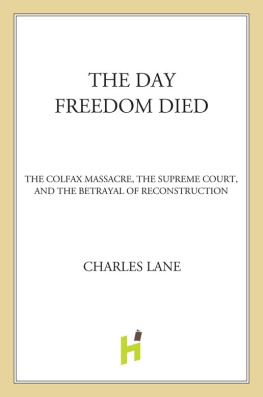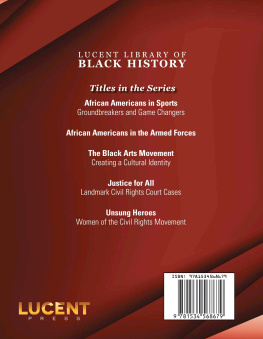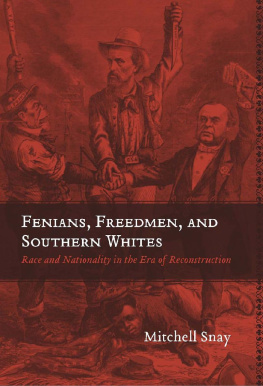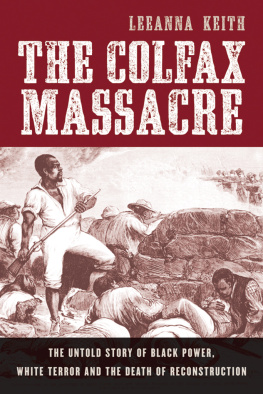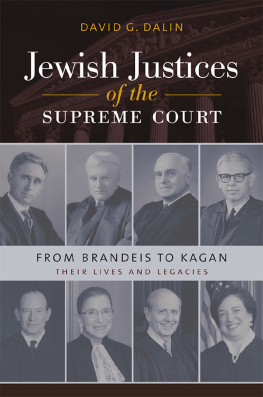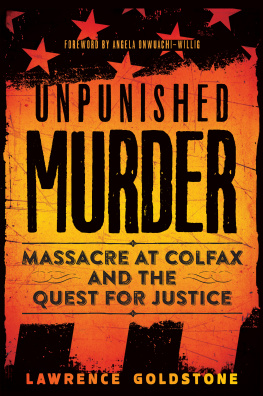At ten oclock in the morning on March 4, 1873Inauguration Daythe president and first lady emerged from the White House and headed for their carriage, a grand four-wheeled barouche pulled by four horses. Washington was draped in red-white-and-blue flags, pennants, and bunting; bold triumphal arches, fashioned out of intertwined flags from around the world, spanned the streets. Pennsylvania Avenue, swept clean, stretched like a bright ribbon to the Capitol, where, at noon, Ulysses Simpson Grant would take the oath of office for the second time.
A blue sky lifted spirits, but, as one reporter noted, its sunny promise of Spring was contradicted by a fierce north wind that seemed the very breath of Winter. The gale roared at forty miles per hour, making four degrees above zero (the official temperature at dawn) feel like thirty below. Grant and his wife, Julia Dent Grant, pressed together on the leather bench of the open barouche as more than two hundred West Point cadets marched ahead of them in cloth dress gray uniforms. One of the shivering young men collapsed and had to be rushed indoors.
Thousands had journeyed to Washington from out of town; the hotels were sold out, even after filling their hallways and lobbies with extra beds. The visitors, not a few of whom employed whiskey against the cold, waited all along the avenue to salute the Civil War hero they had reelected the previous November. No group cheered Grant more heartily than the Negro men and women who lined his route. These members of the audience could point with pride to the Lincoln Zouaves, a colored military unit from Baltimore, resplendent in their tasseled fezzes, baggy red pants, white leggings, and red-trimmed black jackets. Colored spectators sang along when musicians struck up Marching Through Georgia, the Civil War ditty celebrating General William Tecumseh Shermans drive from Atlanta to the sea. Hurrah! Hurrah! The jubilee has come, they chorused. Well all join the Union and fight for Uncle Sam! Shermans marching through Georgia.
Negro support for Grant was an expression of hopethe fervent belief that only Grant and his Republican Party, the party of Lincoln, could keep Americas promise of equal rights for all men. Lincoln had been the first president to invite Negro participation in the inaugural pageant; Grant was the second. But for Grant, freedom and equal rights were matters of principle, not symbolism. More than even the most progressive-minded white Americans of his time, he rejected prejudice. I dont know why a black skin may not cover a true heart as well as a white one, he said. He knew his soldiers had sacrificed not only to hold the nation together but also to make men free. He did not want those sacrifices to have been in vain.
The North might not have won the Civil War without Grant, and his contributions to the liberation of four million people of color had continued. But at first, Reconstruction was directed by Andrew Johnson, the Tennessee tailor who became vice president in March 1865, then succeeded Lincoln after his assassination a month later. Johnson had ceded control of Southern state legislatures to former Confederates, who in turn enacted Black Codes that all but reenslaved the freedmen. The codes contradicted the Thirteenth Amendment, which abolished slavery when ratified in December 1865, and Johnson faced growing resistance from a Radical Republican Congressculminating in the Reconstruction Act adopted on March 2, 1867, over Johnsons veto. The legislation required Southern states to repeal the Black Codes and recognize the political equality of Negroesboth by granting them the vote and by ratifying the Fourteenth Amendment, which made Negroes citizens with the same rights as white people.
Grant, too, resisted Johnsons version of Reconstruction. As the U.S. Armys top-ranking officer, Grant had encouraged his generals in the South to enforce the Reconstruction Act strictly, especially its provisions on voter registration, which barred unrepentant ex-rebel officials from voting. He occasionally supplied troops to put down violence against the freedmen and authorized the military to make arrests for racial offenses where civilian law enforcement had broken down. In 1868, when Johnson provoked his impeachment and near conviction in the Senate by trying to fire the Radical Republican secretary of war, Edwin Stanton, Grant backed Stanton. After his own successful campaign for president in 1868, Grant lobbied hard for the Fifteenth Amendment, which required states to let all eligible voters cast a ballot, regardless of race. It was controversial not only in the South but also in the North, where many states still banned or restricted voting by colored men.
Negro voting rights were politically necessary for Grant and his party. Before the Civil War, the Republicans were exclusively a Northern party; but afterward, they would have to win elections in the South, state and federal, lest the Southern-based Democratic Party retake control of the federal government and reverse the Union victory. And the Republicans could not do that unless Negroes, their naturaland most numerousconstituency, were free to vote.
Grants enthusiasm for the Fifteenth Amendment, though, went beyond expediency. When it won ratification, on February 3, 1870, he exulted that the people had completed the eradication of the notorious Dred Scott decision, handed down by the Supreme Court in 1857, which had decreed that neither slaves nor free men of color could be citizens of the United States. He called the amendment a measure of grander importance than any other one act of the kind from the foundation of our free government to the present day.
And President Grant tackled the Ku Klux Klan.
SOUTHERN FREEDMEN LIVED IN POVERTY AFTER THE CIVIL WAR, BUT SO DID most of the regions whites, for whom economic misery was compounded by the shock and humiliation of defeat. Searching for companionship amid the devastation, some ex-Confederates formed clubs where they could drink, reminisce, and complain. One such group, founded in Pulaski, Tennessee, in late 1865, grew into a secret society with dens across the southeastern United States. By 1870, most white men in that part of the country either belonged to the organization or sympathized with it. This is an institution of Chivalry, Humanity, Mercy and Patriotism, embodying in its genius and its principles all that is chivalric in conduct, noble in sentiment, generous in manhood and patriotic in purpose, the Ku Klux Klan declared. Its goals were to protect the weak, innocent and defenseless, and to protect and defend the constitution of the United States. Actually, the Klan aimed to terrorize all Negroes and the white Republicans who supported them.
In 1868, the Klan assassinated a Negro Republican congressman in Arkansas and three black Republican members of the South Carolina legislatureand in Camilla, Georgia, four hundred Klansmen, led by the sheriff, fired on a black election parade and hunted the countryside for those who fled, eventually killing or wounding more than twenty people. A Klan-led nigger chase in Laurens County, South Carolina, claimed thirteen lives in the fall of 1870. Thanks in part to Klan intimidation of Republican voterswhite and blackDemocrats had returned to powerin Alabama, Virginia, Tennessee, North Carolina, and Georgia in the 1870 elections. This only seemed to encourage more Klan terror elsewhere. In January 1871, five hundred masked men attacked the Union County jail in South Carolina and lynched eight black prisoners. In March 1871, the Klan killed thirty Negroes in Meridian, Mississippi.


